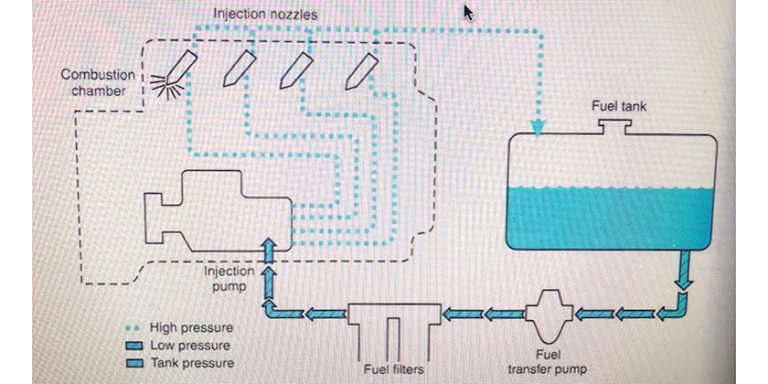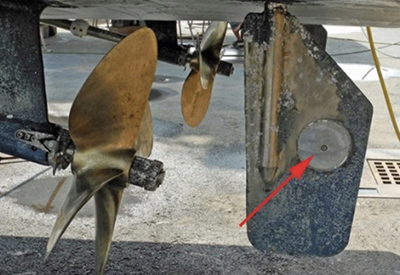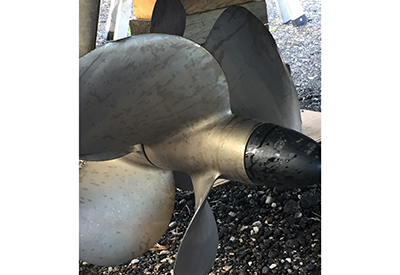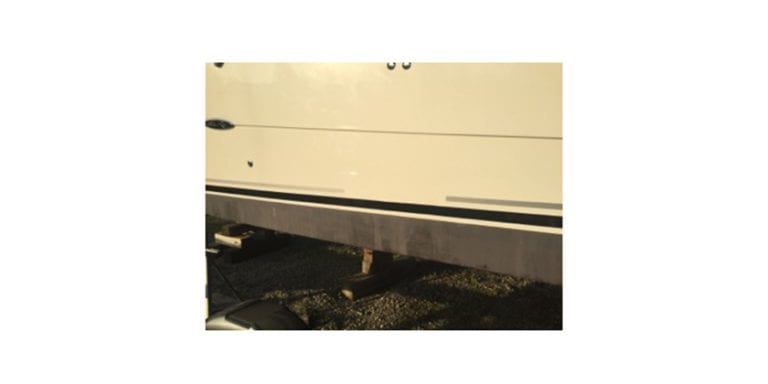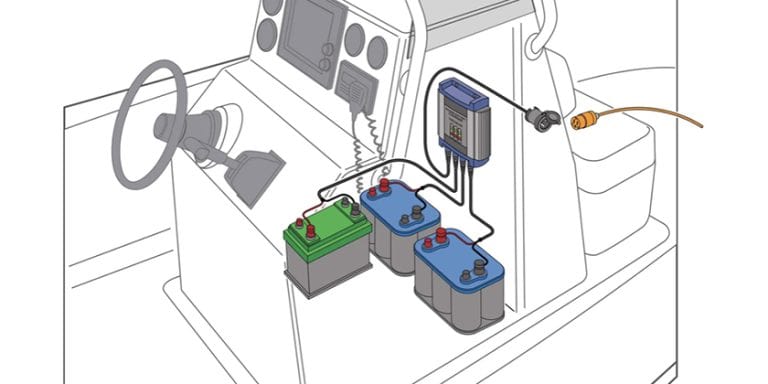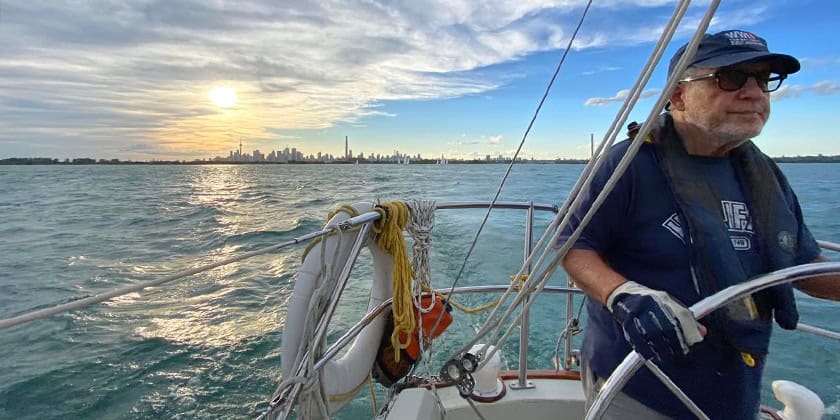Ask Andrew: Canadian Tire or marine store – which do I choose?
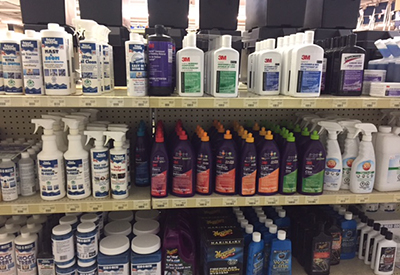
May 10, 2017
Canadian Tire or marine store – which do I choose?
Question:
Can I buy generic automotive parts or products for my boat, or should they specify ‘marine’?
Andrew:
With many products that people use on their boats, the answer is debatable (especially in the realm of cleaners and waxes), but there are two areas where you shouldn’t compromise: wiring and other components for installation in your engine compartment.
a display at Fogh Marine showing a variety of products – many with the words ‘marine’, and some without.
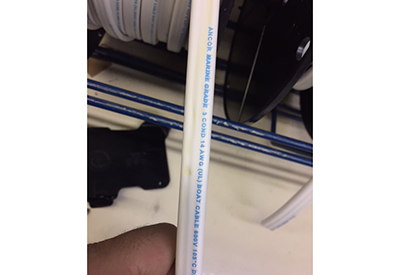 Wiring should be of a tinned-copper, in a marine grade: this ensures that not only will the conductor strong enough to resist fatigue from vibration and moisture, but also so that the shielding is temperature-rated to allow for the high temperatures of engine compartments. Be sure as well that the wiring is rated for the amperage that the conductor will carry.
Wiring should be of a tinned-copper, in a marine grade: this ensures that not only will the conductor strong enough to resist fatigue from vibration and moisture, but also so that the shielding is temperature-rated to allow for the high temperatures of engine compartments. Be sure as well that the wiring is rated for the amperage that the conductor will carry.
‘marine grade’ tinned-copper wire , showing the temperature rating of the shielding.
Why worry? By using inferior grade wiring (which may still function correctly), there is risk of corrosion, damage due to vibration, risk of short circuits, and potentially the risk of conductor shielding melting or catching fire.
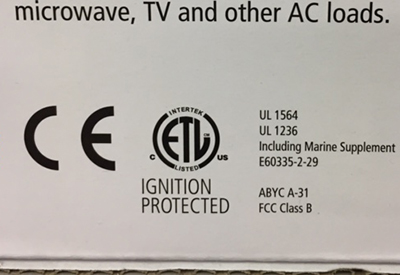 Items for installation in the boat’s engine compartment (fuses, fuse blocks, circuit breakers, switches, starter motors, compressors, battery chargers, etc.) should be of ‘marine grade’ – more specifically, these items should be ‘ignition protected’ (meaning that they won’t ignite a surrounding air-fuel mixture if there is an explosion inside them, and they can’t reach a high enough surface temperature to generate enough spark to ignite an air-fuel mixture). Products that are ignition protected will be labeled as such or with the label ‘SAE J1171’. By using non-ignition protected devices near engines, fuel tanks and batteries, there is enhanced risk of damage, fire or even explosion!
Items for installation in the boat’s engine compartment (fuses, fuse blocks, circuit breakers, switches, starter motors, compressors, battery chargers, etc.) should be of ‘marine grade’ – more specifically, these items should be ‘ignition protected’ (meaning that they won’t ignite a surrounding air-fuel mixture if there is an explosion inside them, and they can’t reach a high enough surface temperature to generate enough spark to ignite an air-fuel mixture). Products that are ignition protected will be labeled as such or with the label ‘SAE J1171’. By using non-ignition protected devices near engines, fuel tanks and batteries, there is enhanced risk of damage, fire or even explosion!
showing ‘ignition protected’ wording in a battery charger.
In some areas, choosing products like cleaning products at CT or elsewhere that aren’t ‘marine grade’ can be cheaper and easier to find and to use – but compromising in wiring and ignition protection standards can compromise your safety and enjoyment.
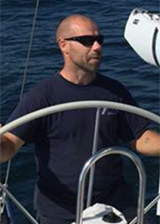
Andrew McDonald is the owner of Lakeside Marine Services – a boat repair/maintenance firm based in Toronto. Andrew has worked in the marine industry for 12 years and is a graduate of the Georgian College ‘Mechanical Techniques – Marine Engine Mechanic’ program.

